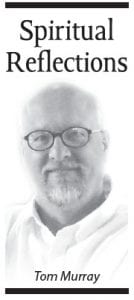There is so much going on in the news that it would be easy to miss an event that took place recently. It is believed that the Voyager I spacecraft has passed through the outer edge of our solar system and has entered interstellar space. This is a remarkable achievement.
The Voyager I was launched on September 5, 1977, just a few days after I started my sophomore year of college. To put this into perspective, Jimmy Carter was president of the United States, gasoline had spiked up to 62 cents a gallon, the best-selling car in America was the Oldsmobile Cutlass, and the median household income was $13,572.
My I-Phone has 240,000 times the memory capacity of the computer that controls Voyager I. In the 36 years since it took flight, it has traveled almost 12 billion miles. It is so far from earth that it takes 17 hours for its signal to reach us traveling at the speed of light.
Amazingly, it will take another 40,000 years to reach the next closest star to us. This is how vast God’s universe is.
How is it that God even knows who we are? What are human beings that God even notices us in the enormity of his creation? When I contemplate this, I can’t help but be reminded of the 8th Psalm, which asks a very profound question, “When I look at your heavens, the work of your fingers, the moon and the stars that you have established, what are human beings that you are mindful of them, mortals that you care for them?
The 15th chapter of Luke’s gospel reminds us that not only is God mindful of us, but that God cares for us so deeply that he will leave no stone unturned in order to find us in our brokenness. Jesus asks the religious authorities who are grumbling about the company he keeps, “Which one of you, having a hundred sheep and losing one of them, does not leave the ninety-nine in the wilderness and go after the one that is lost until he finds it? When he has found it, he lays it on his shoulders and rejoices.”
That’s a good question. I think that the honest answer is that none of us would!
Note that Jesus isn’t asking who would leave the 99 sheep if they are safely cared for. He’s asking who will leave them alone in the wilderness in order to find just the one who is lost. In other words, he’s asking who is willing to risk everything else.
According to Jesus, this is exactly what God does. If we are an abused adolescent with nowhere to turn, God will leave everything behind in order to find us. If we are drowning in addiction, God will look in every alleyway until we are found. If we are lost in the despair of cancer, God will lay hands on us in order to strengthen us in our struggle. If we are a transgender teenager cut off from our family and faith community, God will reach all the way down and hold us close even if no one else will. If affluence, doctrine, power, self-indulgence, pride, or greed takes hold of us, God will risk everything to gently pull us back to him.
It’s an absolutely crazy way to love us, but it’s how God embraces this broken and sinful world. This is why the gospel of Jesus is such good news for us. The God who created a universe so vast that it takes 40,000 years for a spacecraft traveling 11 miles per second just to get to the nearest star believes that we are worth searching for and is willing to leave everything behind to find us.
The next time you stand and look up at the stars that fill the immensity of the night sky, remember that God created you with his very hands from the dust of this earth. God knows your fingerprints and the details of your DNA. God knows when you wander from his love and care, and when you do, he will leave no stone unturned in order to find you once again. God’s love knows no boundary, not even the boundary of death itself.
This is at the heart of the beautiful death and resurrection life that we share. How far will God go to find us? God will go the way to his death on a cross. How does God celebrate once he has found us? God raises us with him from death.
Each month a member
of the Cook County
Ministerium will offer
Spiritual Reflections. This
month’s s contributor
is Tom Murray of the
Lutsen and Zion Lutheran
Churches.



Loading Comments